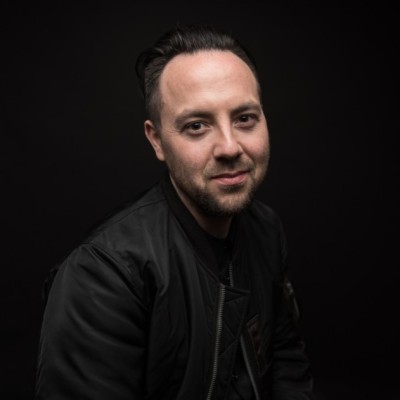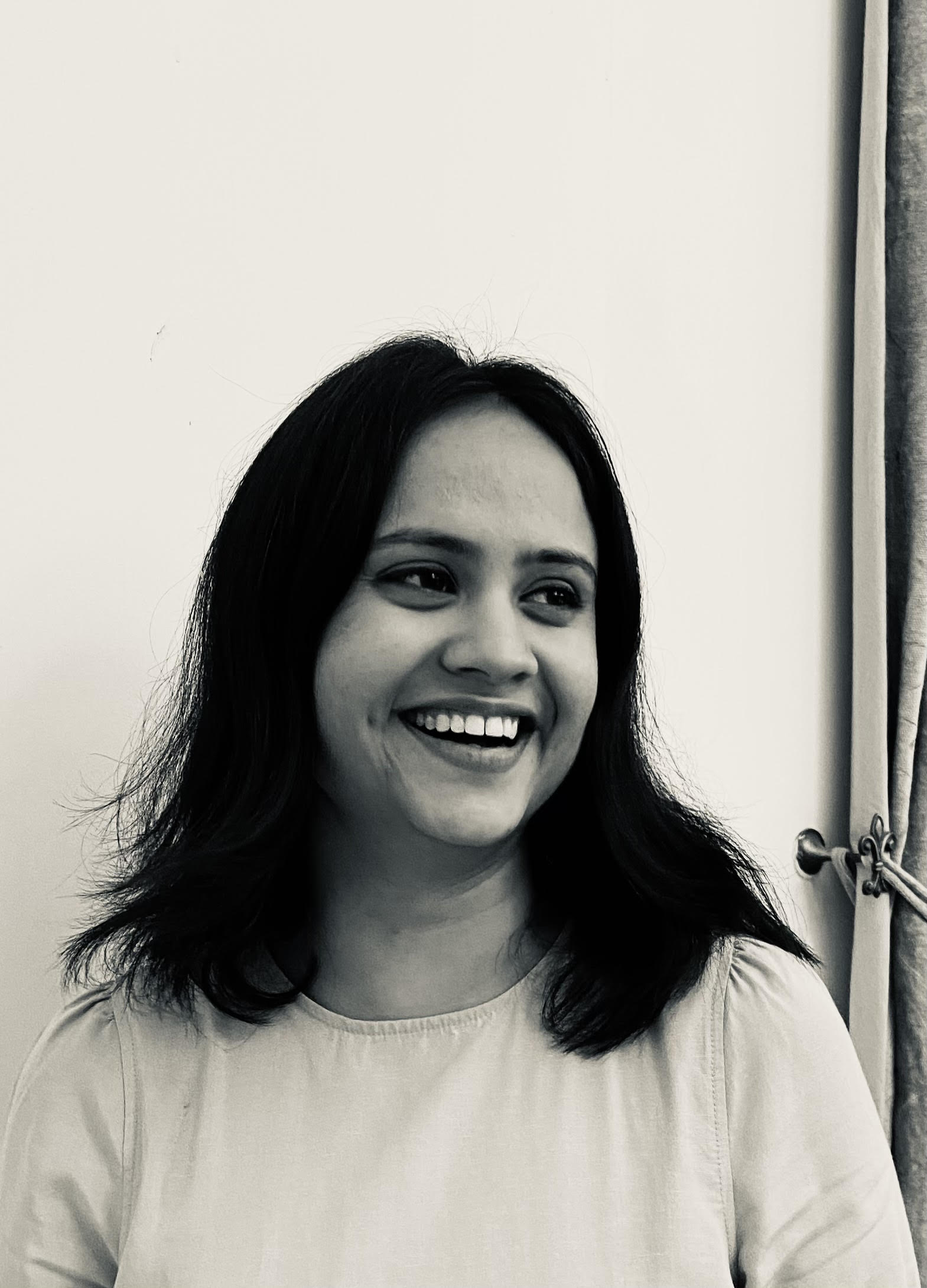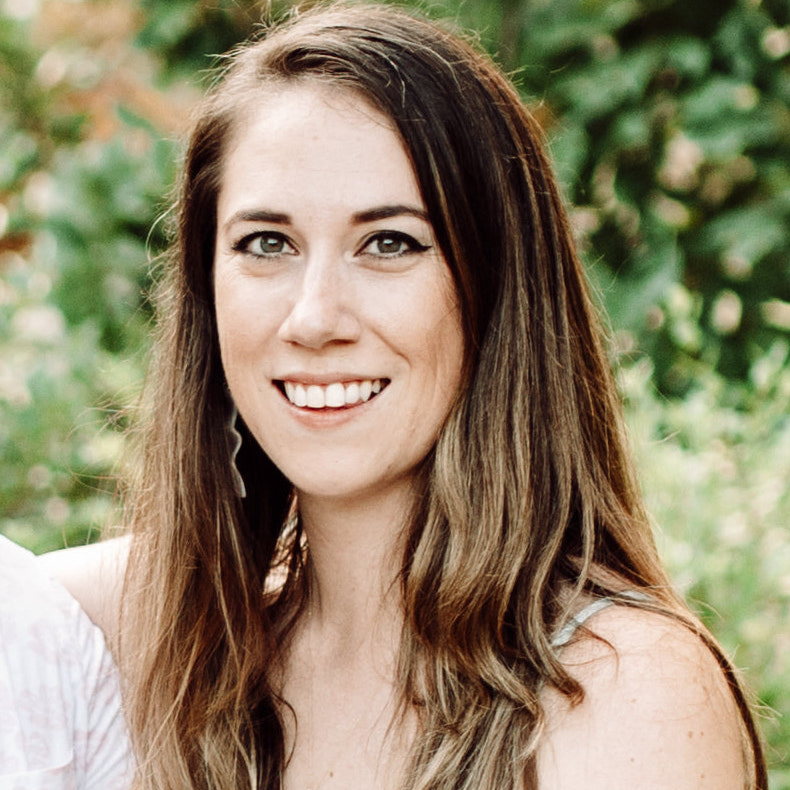Beyond… With Mike Kelton is a podcast about a man—the titular Mike—trying to solve his mundane problems via spiritual experiences. Mike describes the initial pitch for the show as This American Life and Radiolab meets a “queer celebration of the supernatural.”
The first two seasons were made in partnership with the network Forever Dog, but eventually, Mike and his producer, Tracy, decided to part ways with the network…and keep the show going on their own. Together, they recently released a third season, a labor of love that took three years to put together.
We talked to them about the indie versus network experience, the importance of doing your own sponsorship pitches, and how Descript has revolutionized their social media game. This interview has been edited and condensed for length and clarity.
 |
Mike, when you started out, what was your audio experience like? What did you know about podcasting?
Mike: When I first had the idea to do a podcast, I didn't really listen to podcasts, which is insane. But as I started to want to develop it, I started getting really into Radiolab. I loved This American Life, and I loved a podcast called Love and Radio that's really storytelling based. I am a storyteller, as trite as that sounds, and I really love good stories. I became obsessed with the art form of storytelling via podcast, and especially as they are soundscaped and you add some scoring to it. You're transported in a way that I don't get when I'm watching TV.
What about you, Tracy? How did you start working in the industry?
Tracy: I actually had one of the first podcasts with Forever Dog. We all kind of knew each other from the comedy scene in New York. All of us did the Upright Citizens Brigade. I just loved working with them, so I really kept up with what they were working on.
A few years later, I said, “Hey, if you ever need somebody…” I was producing a lot of video at the time. I had a lot of experience editing in Premiere, so I transferred those skills and then learned on the go how to do more podcast audio. I was a senior producer at Forever Dog, and then worked as an EP until August of 2022.
When you first started Beyond, how did you think about building an audience for the show?
Mike: Ooh, that's still an uphill battle. We do have a dedicated audience that I'm deadass obsessed with. Like, they're so cool. I feel like I'm hanging with my friends when I talk to them, but it's still a smaller—we call it a cult-like audience. In season one, we had a live show in New York. That was really helpful for people to get an idea of what the show was about. I actually think it's word of mouth, mostly
WNYC did an interview with us for season one. That was really helpful.
Tracy: There's a few components here from the time at Forever Dog. We were doing a lot of cross promotion. The network has big shows; at the time I was there, they had Las Culturistas, they had a bunch of these shows there.
Podcasting has gone through a lot of shifts over the last few years, so I think the time that Mike put out Beyond allowed him to really get a niche following. And we did get press: Bustle and Queerty and places like that were writing about it.
Did you pitch yourself for those opportunities with publications?
Mike: Yeah. Pitching yourself is really important, and if it comes from the creator or the team that makes it, it goes much further than from a company. I made the mistake of, for season two I hired a PR company, and they did nothing. And I lost a lot of money.
The places who wrote about Beyond were personal contacts, or someone who wrote for a magazine that we reached out to and said, “We love this. We'd love to send it to you for your consideration.”
Tracy: My perspective for this season was, there's been so many outlets shuttering. There's been so many drastic changes in our industry of entertainment and writing, whether that be podcast networks, whether that be outlets, whether that be multiple strikes. So I really wanted to get people who love podcasts and people who make podcasts to listen to Beyond, because I am so proud of the work.
Mike and I really tried to commit to being as authentic as possible. Not that there's anything wrong with selling out; we've sold out many times in our lives. But for this project we said, we're not going to falter on that.
I love that you talk about that creative authenticity, because something I’ve come to believe, doing a lot of these interviews, is that people respond to how much you care about the show. And how much you want to make it.
Mike: Beyond is probably the most authentic version of mine and Tracy's storytelling abilities, because we're not catering to a large corporation. We organically got a brand on board to support this season, which was incredible. We did that all by ourselves, without a sales team. Happy Buddha Hemp basically sponsored the season, and they didn't give us any creative notes. They didn't tell us anything to do.
Constantly in other parts of life, when I'm working for these other corporations, I am catering to a million pieces of red tape that are keeping me from telling the real version of the story. And unfortunately, you're just making stuff for people to make money up a chain. Podcasting is a place where—we don't make money doing this. And we love it.
We really did try, between season two and season three, to shift and sell this as a different show to networks: iHeart, Spotify. Unless you are Chrissy Teigen, people do not want to buy your podcast. It doesn't matter if the creative is good; this industry is run by celebrities.
Talk to me about the business side of it. Did you do ads with Forever Dog?
Tracy: The first season had embedded ads; when we went independent, I went back through the catalog and edited out embedded ads so that we can have dynamic ads instead. And then this last season, we just had the sponsorship, Happy Buddha Hemp, that we got on our own.
Forever Dog still helped us in season three to do cross-promotion from all throughout their network. We still have a great relationship with them.
So why did you decide to leave?
Mike: Forever Dog, as a company, went more in a direction where they really thrived off interview podcasts. Their model was not making docu podcasts, because as we know, making a docu podcast is so much more time, money, and effort than having someone sit in a studio for 90 minutes. So because they went in that direction, it wasn't a good fit for them.
What does your tech setup look like? A docu-pod requires different equipment than something you can record at home.
Tracy: It was kind of a makeshift thing when we said, “Okay, we're going to do this again.” It was working from home, coming out of lockdown. So I had XLR cables, I had handheld mics, and I had a Zoom recorder. Mostly, when we were in the field, it was a Zoom recorder. Or, literally, a phone.
Mike: Phone audio works really well. Voice notes sound good! And I think for a docupod, when you’re in the field, it gives good texture that makes you not have to [sound]scape it. You can use voice notes on your phone, and they'll get you pretty far.
Tracy: That's why I was such a stickler about having our narration audio sound great, because I am a stickler for proper, good audio. We were very intentional about making sure that when the audio is supposed to be in studio, it was very well done. And then we allowed ourselves to have that texture in other places.
And I hear you use Descript when you edit?
Mike: Once we have what we think is a finished story in audio verite, one of us, usually Tracy, will cut down what she thinks the most interesting parts of the story are. We've done it a couple different ways, but often Tracy will send a voice note of like, I think this connects to this. I think you should say something like this.
I might then take that and say, to me, this is very interesting, but I'm going to cut it and rearrange it a little bit. And then I write a script that takes all of that audio and puts it together in some kind of clear story that has a cold open, an intro, beginning, middle and end of the story, with hopefully a takeaway that the audience will feel like.
Tracy: We started in Premiere, where we would share back and forth a Premiere project. When Mike's narration was in, we then put that entire thing into Descript so that we could make cuts in Descript to mess around and play with it. It was so much easier than going back into Premiere, which I've done many times in my career. I love Premiere; it has great moments, and was a really helpful tool. But Descript helped in being able to quickly see words.
Mike: For a show like this, when we have hours of footage, it feels like you're listening to gobbledygook at some point. Descript was really helpful with was taking something from a rough cut to a fine cut and seeing where the repetition was, because when you're actually reading something, I think your brain is able to acknowledge, I've already said this.
And then we really leaned on Descript for our social media breakouts. What I loved so much was, how do we take this section that's like, a five minute section of the podcast, and turn it into like a 90 second thing that can go as an Instagram reel? I would go in and just trim, trim, trim, trim, trim, and then I use the tool to add clearable video footage over it. So it really came through in a big way for social.
Tracy: We're competing now against this new turn in video, and how does video play into podcasting? We couldn’t do two fun people in the studio, cutting it for TikTok.
Mike used to put out background BTS footage; we had that, but we didn't have the moments of the pod we might have wanted to share on social. Descript made that possible for us.
Another thing is like—we had a wonderful team, but Mike and I were doing so much…
Mike: And in Descript, it would be so quick.
How did you balance working other jobs with finding time and energy to make this podcast?
Mike: I don't think we were great at it! I don’t think we can help anyone there. We really struggled with it, because it gave us a lot of joy. We cared too much about it. So we would overextend ourselves. Maybe at the last week we figured out what the flow was, but that's the hardest thing for people to do. And unfortunately, I don't have the answers.
Tracy: I think that's why I go back to, if you're going to start a podcast, you have to really love it so much. Because when we were overworked and overtired and released an episode, we would text each other on the morning of and be like, “I'm so proud of this. This means so much to me.” You have to live and breathe for this creative. And if you're not obsessed with it, you're going to resent it.
What other advice do you have for beginning podcasters?
Mike: I think it's hard to grow in this culture as an artist, with what is readily available and what is being valued. As someone who has grown so much as an artist, working with Tracy, I would say, be open to becoming a newer, more complex version of an artist with the collaborator you choose. So choose very wisely and choose thoughtfully with someone you're giving a lot of space and value to. Because it's inevitable that you will grow together. Pick a person who you really love and trust, and be open to that growth. That would be my advice.
Tracy: Mike and I are the same age, and in our 20s, we spent a lot of time making quick content. Like, a lot of sketches. Some we were proud of, some were like, okay, what was that? We both spent a lot of time under the panic of the changing tides. Of, what is the new thing? What is the new piece of content I have to make? And so, if that is what you think you're doing for a podcast, go for it. If you're cool with that, go for it.
Mike: I would say don’t go for it! If you’re making a podcast ‘cause you think people will click on it, then don't make that podcast.
Tracy: No, that, that's true. It's hard. because I'm thinking of my 20’s. I only know how to be conscious in my artistry because I made so many mistakes in my 20’s.
My advice would be, you gotta listen to your gut. The more you can hone your intuition and your gut, the better you'll be as a storyteller, the better you'll tune out the noise, the better that you will know who to work with, who to partner with, and what directions to go in. It’s really, if you can hone listening to yourself, and surrounding yourself with people who trust your voice genuinely and authentically, then you'll do okay.






%20(1).JPG)

























